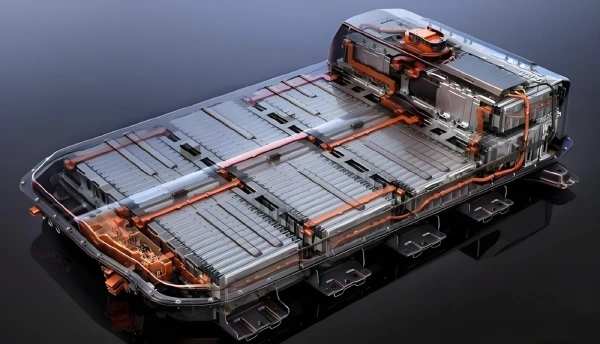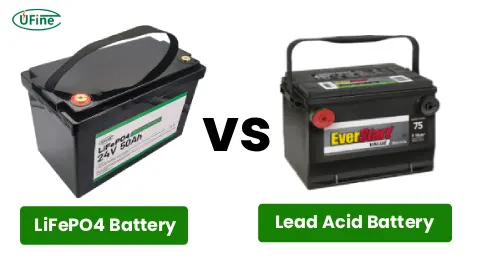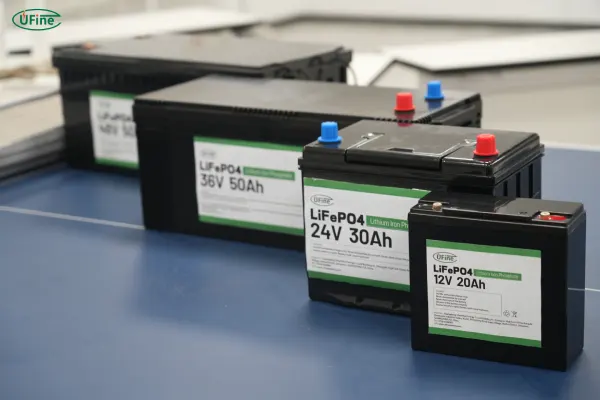
- Part 1. How to know if your car can use a lithium battery
- Part 2. LiFePO4 vs. lead acid: advantages of LiFePO4 car battery
- Part 3. LiFePO4 vs. lead acid: disadvantages of LiFePO4 car battery
- Part 4. Is LiFePO4 a good starting battery for electric vehicles?
- Part 5. Can LiFePO4 batteries withstand different temperatures?
- Part 6. Costs vs. benefits—is it worth it?
- Part 7. Should you replace your lead-acid battery with a LiFePO4 battery?
- Part 8. FAQs
Part 1. How to know if your car can use a lithium battery
Not every vehicle is immediately compatible with a lithium upgrade, but many modern cars can support a LiFePO4 car battery with little to no modification.
Here are a few ways to check:
- Voltage Compatibility: Most cars use a 12V system. A 12V LiFePO4 battery is a direct replacement for a 12V lead acid battery.
- Battery Management System (BMS): High-quality LiFePO4 batteries include built-in BMS that protect against overcharging, short circuits, and deep discharges, making them safe to use in vehicles.
- Charging System: Older cars may have alternators that deliver higher voltages, which can affect lithium batteries. A compatibility check or use of a DC-DC charger is often recommended.
- Physical Size and Fit: Always confirm that the lithium battery dimensions match the battery tray in your vehicle.
Lead Acid vs. Lithium Ion Batteries: A Complete Comparison
Part 2. LiFePO4 vs. lead acid: advantages of LiFePO4 car battery
The LiFePO4 (Lithium Iron Phosphate) car battery provides several advantages over traditional lead-acid batteries and lithium-ion chemistries. It makes LiFePO4 Car Battery a popular choice in automotive applications:
1. Longer life
LiFePO4 batteries are known for their impressive lifespan if they are taken care of properly. A LiFePO4 car battery can last 5 to 10 years or more than 4000 cycles. However, some factors, like extreme weather conditions, irregular charging, and discharging, can affect the battery’s lifespan.
2. Fast charging ability with higher discharge rates.
A LiFePO4 lithium iron phosphate car battery can charge quicker than a lead acid battery. It can handle C-rates of 1C to 4C, which means the charging range is 15 minutes to 1 hour, but it depends on the specific battery model car alternator charging ability. Moreover, the internal chemistry of
LiFePO4 car battery can deliver consistently high power rates, which ensures battery acceleration and overall performance.
3. Lightweight (easier on your car)
Every pound counts in a car. The lighter weight of LiFePO4 can enhance the vehicle’s acceleration, handling, and fuel improvement. A LiFePO4 car battery weighs anywhere from 5 kg to 30 kg compared to a lead-acid car battery weighing around 15 kg to 35 kg. So, the LiFePO4 battery is 50% to 70% lighter and has similar power efficiency.
4. Higher safety (less risk of explosion)
Being the latest technology, the battery has more safety features, making it the first choice for the car industry. LiFePO4 car battery has a non-flammable electrolyte, puncture resistance build, and stable internal structure, lowering the risk of explosion, fire, and overheating.
5. Low maintenance (no need for topping up fluids)
Once you have installed a LiFePO4 car battery, you will not need to look after the maintenance. LiFePO4 battery does not need to be refilled with fluid like the lead-acid car battery. Besides this, the absence of fluids means there will be no stain stress on the chassis, suspension, and battery compartment like the lead acid battery used to have over time.
Part 3. LiFePO4 vs. lead acid: disadvantages of LiFePO4 car battery
Every picture has two aspects. Before deciding anything, one should know some of the drawbacks of the LiFePO4 car battery.
1. Higher initial cost compared to lead-acid batteries
It is expensive if you are switching from a lead-acid car battery. The cost of a LiFePO4 car battery is 2 to 3 times higher. However, it may be a one-time investment beneficial in the coming years.
Always need a compatible charging system (may need modifications)
If you plan to switch car batteries with LiFePO4, a lithium iron phosphate, make sure that the battery comes with a Battery Management System (BMS). It is an internal charging control system that stabilizes the voltage of the car’s alternator. However, in the case of a battery management system, a BMS always needs to make some alterations to the car’s charging system to prevent overcharging problems.
2. Extreme weather condition tolerant issue
Like the lead-acid car battery, LiFePO4 has performance issues in case of extreme weather conditions. The normal operational range to get the best performance in terms of capacity, power output, and charging efficiency of LiFePO4 car battery is between 0°C to 45°C (32°F to 113°F). However, performance and safety are not optimal in extreme weather conditions below 0°C and above 45 °C.
3. Not easily available like traditional batteries
Another disadvantage of LiFePO4 batteries is the issue of availability. Being new in the market, it will take some time to establish lead acid batteries. Therefore, finding a suitable LiFePO4 car battery to switch from a lead acid battery is always hard.
4. Important Considerations Before Switching
Suppose you plan to switch your old lead acid car battery with the latest and more energy-efficient LiFePO4 car battery. In that case, you should consider some key points.
Firstly, find out the specific model of LiFePO4 battery that is compatible with your car. Each car needs a different size and amp hour for proper starting and operating electronic instruments. Therefore, choose a battery that is compatible with car needs.
Secondly, consider the battery’s charging system. Some LiFePO4 car batteries with BMS can be installed directly without altering the charging system. However, in the case of a battery without BMS, a kit will be required to stabilize the charging voltage coming out of the battery alternator.
Thirdly, the cost of the LiFePO4 car battery is 2 to 3 times higher than that of the lead acid battery. Therefore, it is hard to invest more money in the battery. However, it is worth taking the initiative as the cost will recover in the coming years due to the longer battery lifespan.
Part 4. Is LiFePO4 a good starting battery for electric vehicles?
While electric vehicles (EVs) typically rely on large lithium-ion battery packs to power the drivetrain, they still require an auxiliary 12V battery for electronics and starting functions.
- High Cranking Power: LiFePO4 car batteries deliver strong, consistent power, making them reliable as starting batteries.
- Lightweight Advantage: They are significantly lighter than lead acid batteries, reducing vehicle weight and improving efficiency.
- Longer Life: Unlike lead acid, which may last 2–3 years, LiFePO4 batteries can perform well for up to 10 years under proper conditions.
For EV owners, this means fewer replacements and greater reliability.
Part 5. Can LiFePO4 batteries withstand different temperatures?
Temperature tolerance is a key factor when comparing LiFePO4 and lead acid car batteries:
- Cold Weather: Lead acid batteries lose efficiency in extreme cold, often struggling to start engines. LiFePO4 batteries also experience reduced performance below 0°C (32°F), but many include self-heating features or BMS protection.
- Hot Weather: High heat shortens lead acid battery life due to water loss and sulfation. LiFePO4, on the other hand, handles heat much better, retaining performance and extending lifespan.
- Storage Stability: LiFePO4 batteries have a very low self-discharge rate, making them more reliable if your car sits unused for long periods.
Part 6. Costs vs. benefits—is it worth it?
The upfront cost of a LiFePO4 car battery is significantly higher than a lead acid car battery. A lead acid battery might cost under $150, while a LiFePO4 alternative could range from $400 to $800.
However, the benefits often outweigh the costs:
- Longevity: LiFePO4 lasts 5–10 times longer than lead acid.
- Performance: Consistent power delivery, fast charging, and deep discharge capability.
- Maintenance-Free: No topping up with distilled water, no corrosion issues.
- Environmental Impact: Lithium iron phosphate is more eco-friendly with safer chemistry than lead acid.
Over the long term, LiFePO4 batteries usually save money by reducing replacement frequency and offering better performance.
Part 7. Should you replace your lead-acid battery with a LiFePO4 battery?
If your car’s charging system is compatible and you are looking for long-term value, replacing your lead acid car battery with a LiFePO4 car battery is a smart investment.
- For Daily Drivers: Expect better reliability, faster starts, and less worry about cold or hot weather.
- For EVs: LiFePO4 provides stable 12V support for onboard electronics, enhancing overall system efficiency.
- For Long-Term Savings: Although the upfront cost is higher, the extended lifespan makes the switch worthwhile.
Part 8. FAQs
Does Tesla use LiFePO4 batteries?
Yes. Tesla began using LiFePO4 batteries in some of its standard-range models starting in 2021. These batteries are valued for their long cycle life, safety, and stable performance, particularly in regions with warm climates.
Is it difficult to keep LiFePO4 batteries fully charged?
Not at all. LiFePO4 batteries are designed to be easy to maintain. Thanks to their low self-discharge rate, they hold a charge for long periods without needing constant top-ups. A standard car alternator or smart charger typically keeps them charged without extra effort.
What is the lifespan of a LiFePO4 battery?
A well-maintained LiFePO4 car battery can last between 8 to 10 years or more, with thousands of charge cycles. This is significantly longer than a typical lead acid car battery, which usually lasts 2–3 years under similar conditions.
Related Tags:
More Articles

What are Watts and Watt Hours in Battery?
Understand watt vs watt-hour in batteries, how to calculate battery watt hours, and what Wh means for car batteries, devices, and energy storage.
A Complete Guide to the Best Batteries for Flashlights
Compare the best batteries for flashlights, including AA, AAA, 18650, 21700, CR123A. See which battery offers the best brightness, runtime, and reliability.
How Long Do Rechargeable AA Batteries Last?
How long do rechargeable AA batteries last? Compare NiMH and lithium AA lifespan, recharge cycles, key factors, and performance vs alkaline batteries.
How Much Current Can a 9V Battery Really Supply?
Discover how many amps a 9V battery can supply, its actual current output, discharge rate, and capacity for alkaline, lithium, and rechargeable 9V batteries.
12V STD vs 12V AGM: Meaning, Differences, and Which Is Better
Understand what STD and AGM batteries mean, their key differences, and which 12V battery fits your needs best in 2026.





